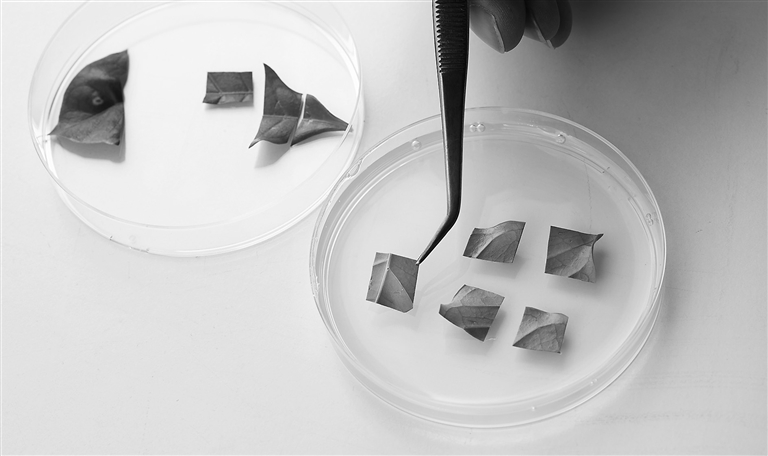
FINNISH scientists have created the first lab-grown, genetically engineered coffee, which they claim “smells and tastes like the real thing.” The researchers used a process called cellular agriculture, which involves extracting cells from a small plant or animal sample. It has already been used to create artificial meat and milk. In the latest example of lab-grown alternatives, cell samples were taken from Arabica, a popular coffee plant that accounts for 56 percent of global production. Cell samples were then transferred to bioreactors to produce biomass, which was harvested for roasting and brewing. With lab-grown coffee, the researchers claim they can tackle sustainability issues in the global coffee industry, such as a need for clearing space for coffee plants to keep up with an insatiable demand for the drink worldwide. The research is being conducted at VTT Technical Research Center, based in Espoo, Finland. “The process uses real coffee plant cells,” said Heiko Rischer, head of plant biotechnology at VTT. “Initially a cell culture is started from a plant part, such as a leaf. The formed cells are propagated and multiplied on a specific nutrient medium. Ultimately, the cells are transferred to a bioreactor from which the biomass is then harvested. The cells are dried and roasted and then coffee can be brewed.” The first batches produced by VTT in their laboratory smell and taste like conventional coffee, according to the results of a sensory analysis. After drinking a cup, Rischer said: “There is a surprisingly full aroma. In terms of smell and taste, our trained sensory panel and analytical examination found the profile of the brew to bear similarity to ordinary coffee.” Cellular agriculture is the production of animal- or plant-sourced foods from cell culture. It’s often touted as a more sustainable and ethical way of generating animal or plant protein for human consumption. Animal insulin could be considered the first cellular agriculture product, created in 1922, an achievement that won the Nobel Prize in Physiology or Medicine the following year. VTT’s production process is based on existing and established technology such as the operation of conventional bioreactors. What’s more, the idea that coffee cells could be used to make coffee was presented back in 1974 by plant scientist P.M. Townsley. But the VTT scientists have put the theory into practice with their lab-grown brew, which they think could hit the market by 2025 because regulatory approval and introduction to the market are hurdles before lab-grown coffee can become a commercial product. (SD-Agencies) | 
